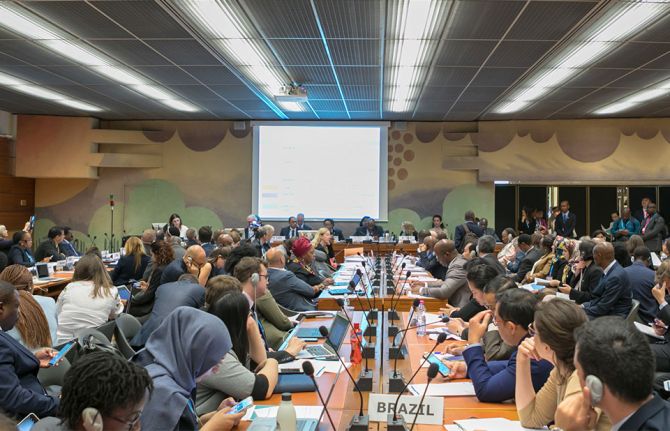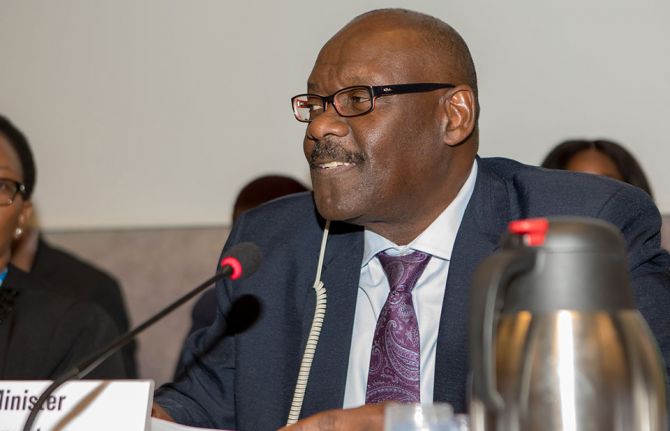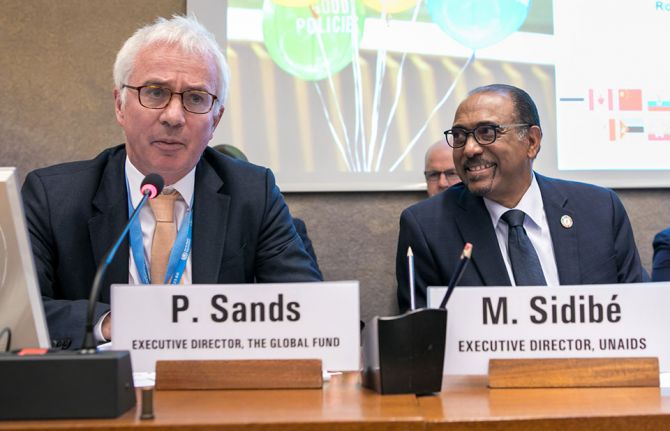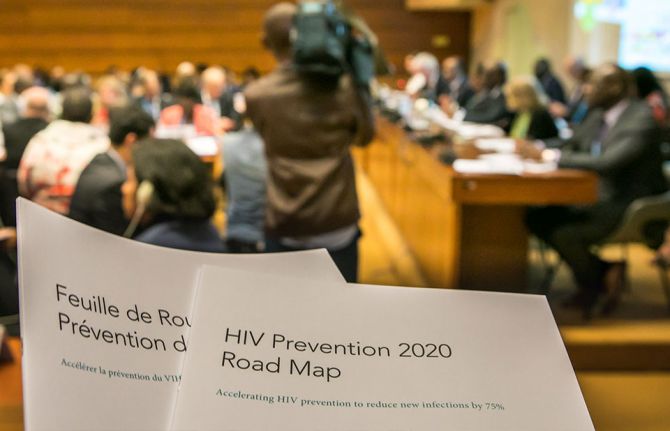




Feature Story
Global HIV Prevention Coalition accelerates action to reduce new HIV infections
23 May 2018
23 May 2018 23 May 2018The Global HIV Prevention Coalition has launched its first progress report.
Taking stock of the progress made in strengthening political commitment for HIV prevention and reducing new HIV infections, the report shows that significant progress has been made since the launch of the Global HIV Prevention Coalition six months ago. National prevention coalitions have been established to accelerate and better coordinate responses, new and ambitious prevention programme targets have been set in many countries and HIV strategies that focus on prevention have been launched.
“There are many promising country examples across the coalition we can learn from,” said Sicily Kariuki, the Minister of Health of Kenya.
Good programme examples highlighted at the event include strong condom programmes in some southern African countries and high voluntary medical male circumcision coverage in several eastern African countries. Strong programmes for key populations, including in India and Ukraine, and pre-exposure prophylaxis being rapidly introduced and expanded in Brazil and Mexico, as well as in South Africa and Kenya, were also noted.
However, the progress report also shows that much still needs to be done. Policies on age of consent continue to represent major barriers to adolescents accessing services. Punitive laws and law enforcement practices hinder access by key populations.
“Every day, there are 1000 new HIV infections among young women and adolescent girls. Prevention programme gaps remain huge,” said Michel Sidibé, the Executive Director of UNAIDS.
For prevention efforts to be sustainable, civil society should be meaningfully engaged in all national prevention coalitions, and their expertise and comparative advantage in implementation used. HIV prevention also needs to be adequately funded.
“Four main reasons that were holding us back were identified when we formed the coalition: gaps in political leadership, policy barriers to effective prevention, gaps in prevention financing and lack of systematic programme implementation at scale. With the adoption of the Global Prevention 2020 Road Map we committed ourselves to address these issues,” said David Parirenyatwa, the Minister of Health and Child Care of Zimbabwe.
More than 200 delegates, including 11 ministers of health from coalition countries, as well as ministers from three additional countries that newly joined the coalition—Botswana, the Islamic Republic of Iran and Myanmar—attended the launch event, held on 22 May at the 71st World Health Assembly in Geneva, Switzerland.



